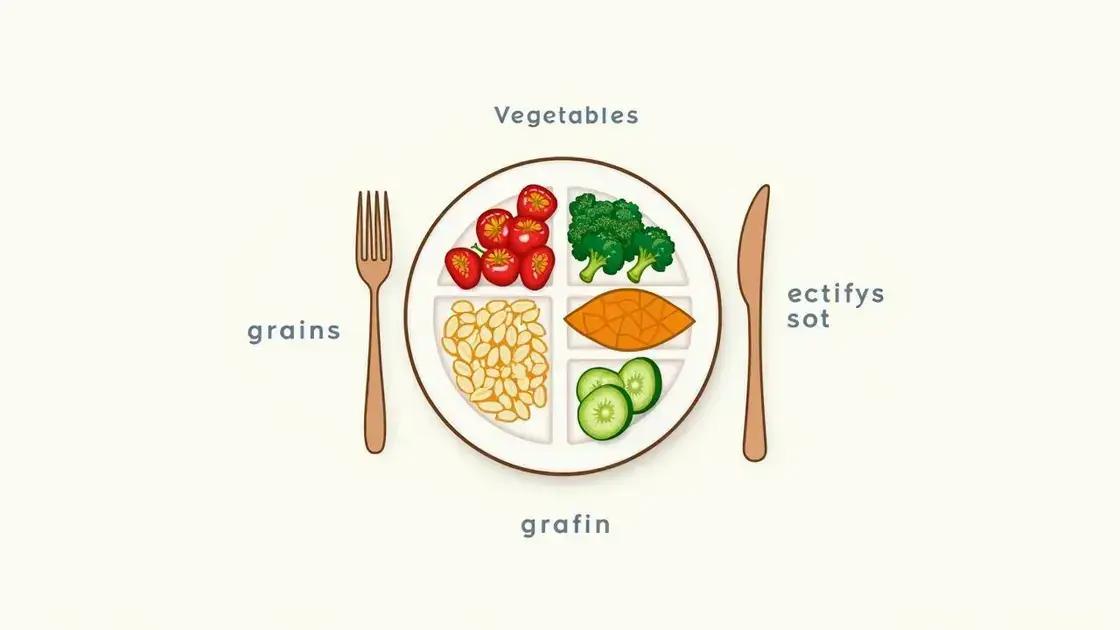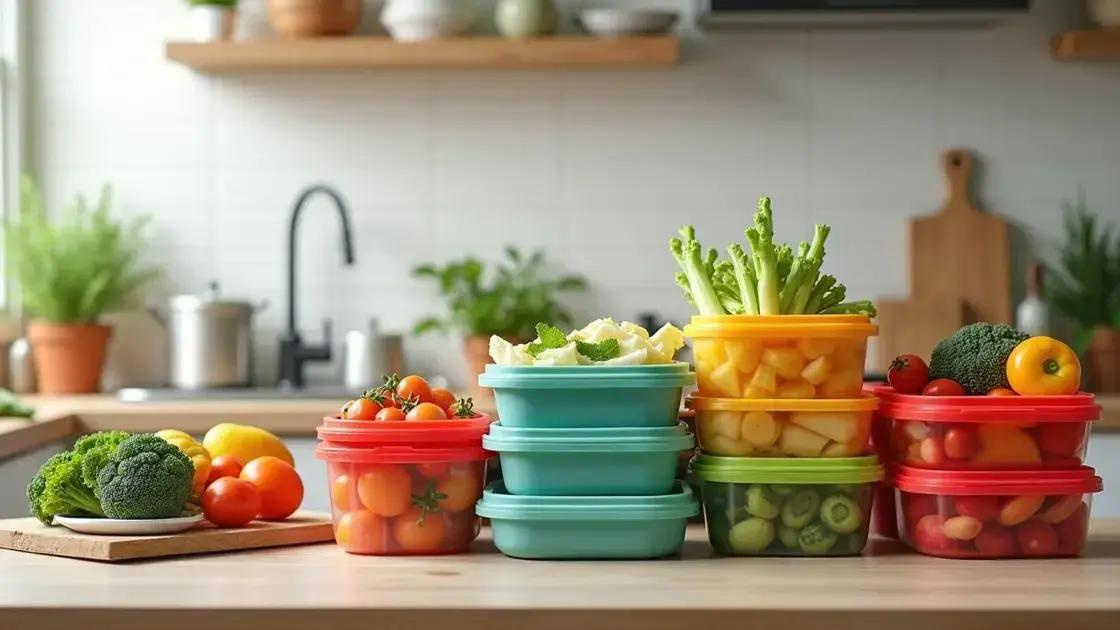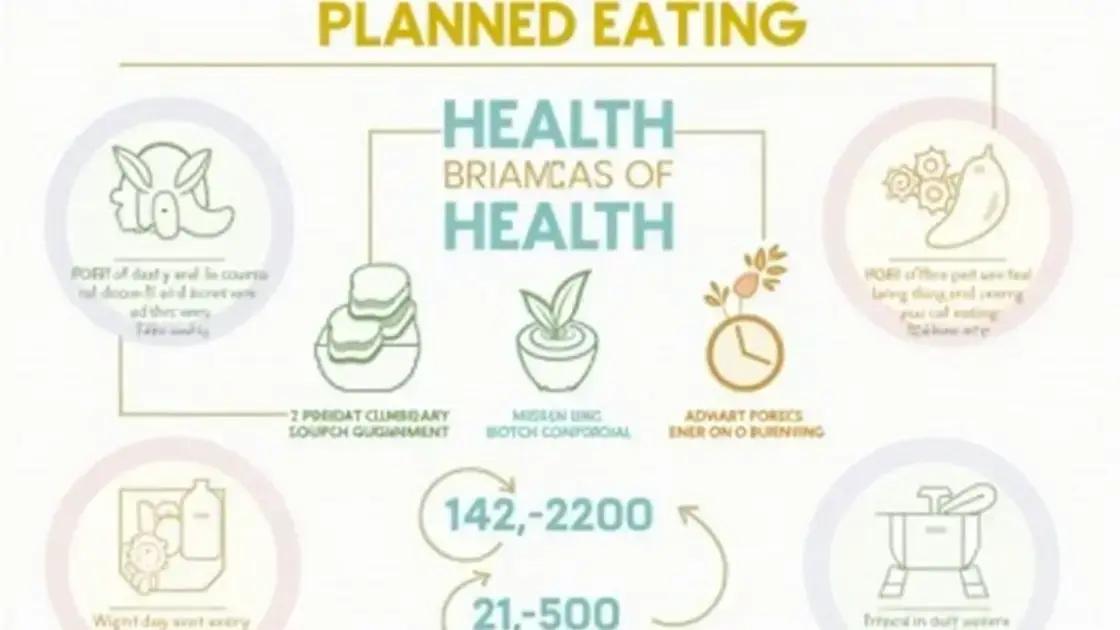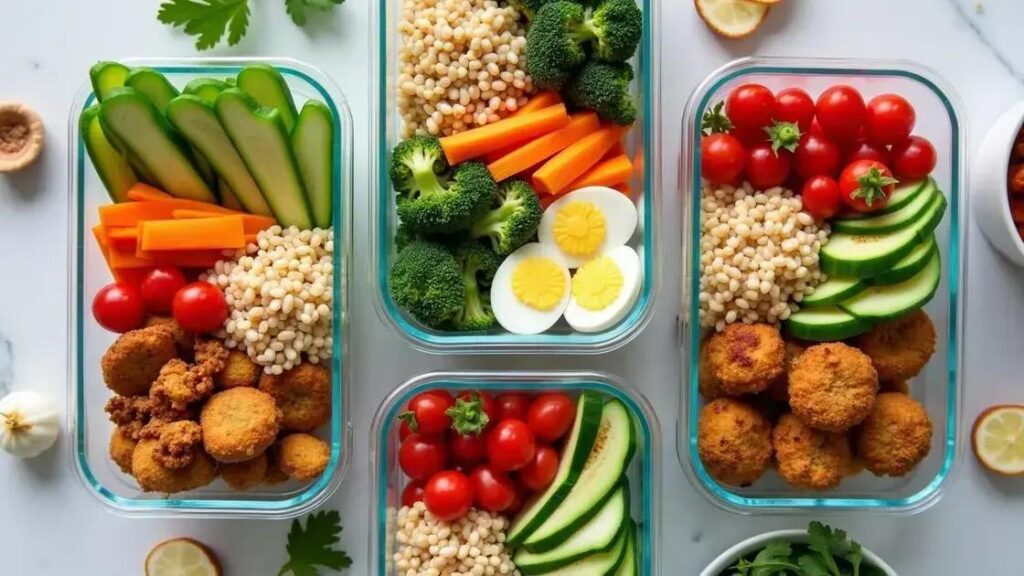Preparing balanced meals in advance offers numerous benefits, including saving time, improving nutrition, and reducing stress. By planning your meals, using effective meal prep techniques, and understanding the components of a balanced diet, you can enjoy healthier eating habits and better manage your weight.
Preparing balanced meals in advance is a game-changer for your health and lifestyle. By dedicating a small amount of time each week to meal prep, you can ensure that you always have nutritious food on hand. Not only does this practice save you time during busy weekdays, but it also helps you make healthier choices, reduce food waste, and save money. In this blog post, we will explore the many benefits of preparing balanced meals in advance and provide tips for getting started.
Understanding Balanced Meals

Understanding balanced meals is crucial for maintaining a healthy diet. A balanced meal consists of the right proportions of carbohydrates, proteins, and fats, along with essential vitamins and minerals.
Components of a Balanced Meal
A balanced meal should include:
- Carbohydrates: These are your body’s main source of energy. Good sources include whole grains, fruits, and vegetables.
- Proteins: Vital for building and repairing tissues. Try lean meats, fish, beans, and legumes.
- Fats: Healthy fats are necessary for brain health and hormone production. Look for sources like nuts, seeds, and olive oil.
The Role of Portion Sizes
It’s not just about the ingredients, but also the portions. Using the plate method can help visualize your meal:
- Fill half your plate with vegetables and fruits.
- Fill one quarter with lean proteins.
- Fill one quarter with whole grains.
Why Balance Matters
Eating a balanced meal helps regulate blood sugar levels, maintain a healthy weight, and improve overall well-being. It also boosts energy levels and enhances mood.
Planning Balanced Meals
When preparing meals in advance, think about variety. Incorporate different colors, textures, and flavors to keep your meals exciting while ensuring you meet nutrient needs.
Time-Saving Tips for Meal Prep

Meal prep can save you a lot of time during the week. Here are some effective tips to make your meal preparation faster and easier.
1. Plan Your Menu
Spend a few minutes each week to create a meal plan. Choose recipes that use similar ingredients to reduce food waste and make shopping easier.
2. Batch Cooking
Cooking in large batches is a fantastic way to save time. Make big portions of your favorite dishes and store them in individual containers. You can freeze them for later use.
3. Use the Right Tools
Invest in quality kitchen tools. A good chef’s knife, cutting board, and food processor can speed up meal prep. Consider using a slow cooker or instant pot for hands-free cooking.
4. Prep Ingredients Ahead
Wash and cut vegetables, portion snacks, and marinate proteins ahead of time. Store these items in the fridge, so they’re ready to use when you start cooking.
5. Organize Your Kitchen
Keep your kitchen organized by grouping similar items together. Easy access to ingredients can significantly speed up your cooking process.
6. Make Use of Leftovers
Create new meals from leftovers. For example, use roasted chicken in a salad or wrap. This not only saves time but also reduces food waste.
7. Designate a Meal Prep Day
Choose one day a week for meal prep. Dedicate a few hours to cooking and packaging your meals, so you can enjoy hassle-free eating throughout the week.
Health Benefits of Planned Eating

Planned eating brings numerous health benefits that can significantly improve your quality of life. Here are some key advantages:
1. Better Nutrition
When you plan your meals, you can ensure that you include a variety of foods. This helps provide your body with essential nutrients from all food groups, supporting overall health.
2. Weight Management
Planned eating promotes portion control, making it easier to maintain a healthy weight. By preparing meals in advance, you can avoid the temptation of unhealthy options and snacks.
3. Increased Energy Levels
Consuming balanced meals regularly fuels your body, leading to sustained energy throughout the day. This helps improve focus and productivity in daily activities.
4. Reduced Stress and Anxiety
Having meals prepped alleviates the stress of cooking every day. You no longer need to worry about what to eat last minute, which creates a sense of calm.
5. Improved Digestion
Eating planned meals with the right balance of fibers can promote better digestion. Consistent meal timing helps regulate your digestive system.
6. Healthier Choices
Planning your meals allows you to choose healthier ingredients. You can avoid processed foods and fast food, thus reducing the risk of chronic diseases.
7. Time Savings for Meal Prep
When you plan your meals, you will spend less time shopping and cooking. This means you have more free time to enjoy other activities.
How to Start Preparing Meals in Advance

Starting to prepare meals in advance can be simple and enjoyable. Here are steps to help you get going:
1. Gather Your Supplies
Collect necessary kitchen tools such as cutting boards, sharp knives, and storage containers. Make sure you have labels and markers for easy identification of your meals.
2. Choose a Meal Prep Day
Select one day each week dedicated to meal prep. This could be Saturday or Sunday when you have more free time. Align your prep schedule with your weekly menu.
3. Plan Your Meals
Create a menu for the week. Include a variety of recipes that are balanced and use similar ingredients. This minimizes waste and cuts down on shopping trips.
4. Shop Smart
Make a shopping list based on your meal plan. Stick to your list to avoid impulse buys. Consider shopping at farmers’ markets for fresh produce.
5. Meal Prep Techniques
Try different cooking methods such as baking, steaming, or grilling. Prepare grains, proteins, and veggies in large batches. Portion them into containers for convenience.
6. Store Meals Properly
Use airtight containers to store your meals in the fridge or freezer. Label the containers with the date and contents so you can use them easily later.
7. Keep It Simple
Start with easy recipes that don’t require complex techniques. As you get comfortable, you can try more challenging dishes.
8. Stay Flexible
Be open to changing your meals based on what you have in the fridge. This reduces waste and keeps your meals exciting.
In Conclusion: The Power of Meal Prep
Preparing balanced meals in advance offers numerous benefits that enhance our daily lives. From saving time and reducing stress to promoting healthier eating habits, meal prep is a valuable tool.
By understanding the components of balanced meals, implementing time-saving tips, and recognizing the health benefits of planned eating, you can lead a more organized and healthier lifestyle.
Starting your meal prep journey may seem daunting, but with the right strategies and techniques, it can become a rewarding part of your routine.
Embrace the advantages of meal preparation, and transform the way you eat for good!
FAQ – Frequently Asked Questions about Preparing Balanced Meals in Advance
What are the main benefits of preparing meals in advance?
Preparing meals in advance saves time, promotes healthier eating habits, reduces stress, and helps in weight management.
How can I ensure my meals are balanced?
Include a variety of foods: carbohydrates, proteins, healthy fats, and plenty of fruits and vegetables in your meal prep.
What tools do I need for meal prepping?
You will need cutting boards, sharp knives, storage containers, and possibly cooking appliances like slow cookers or instant pots.
How do I start meal prepping if I’m new to it?
Begin by selecting a meal prep day, planning your meals for the week, and gathering your ingredients and supplies.
Can meal prep really help with weight loss?
Yes, planned meals typically help you control portions and avoid unhealthy food choices, making it easier to manage your weight.
How long can I store prepped meals in the fridge?
Most prepped meals can be stored in the fridge for 3 to 5 days. For longer storage, consider freezing them.













